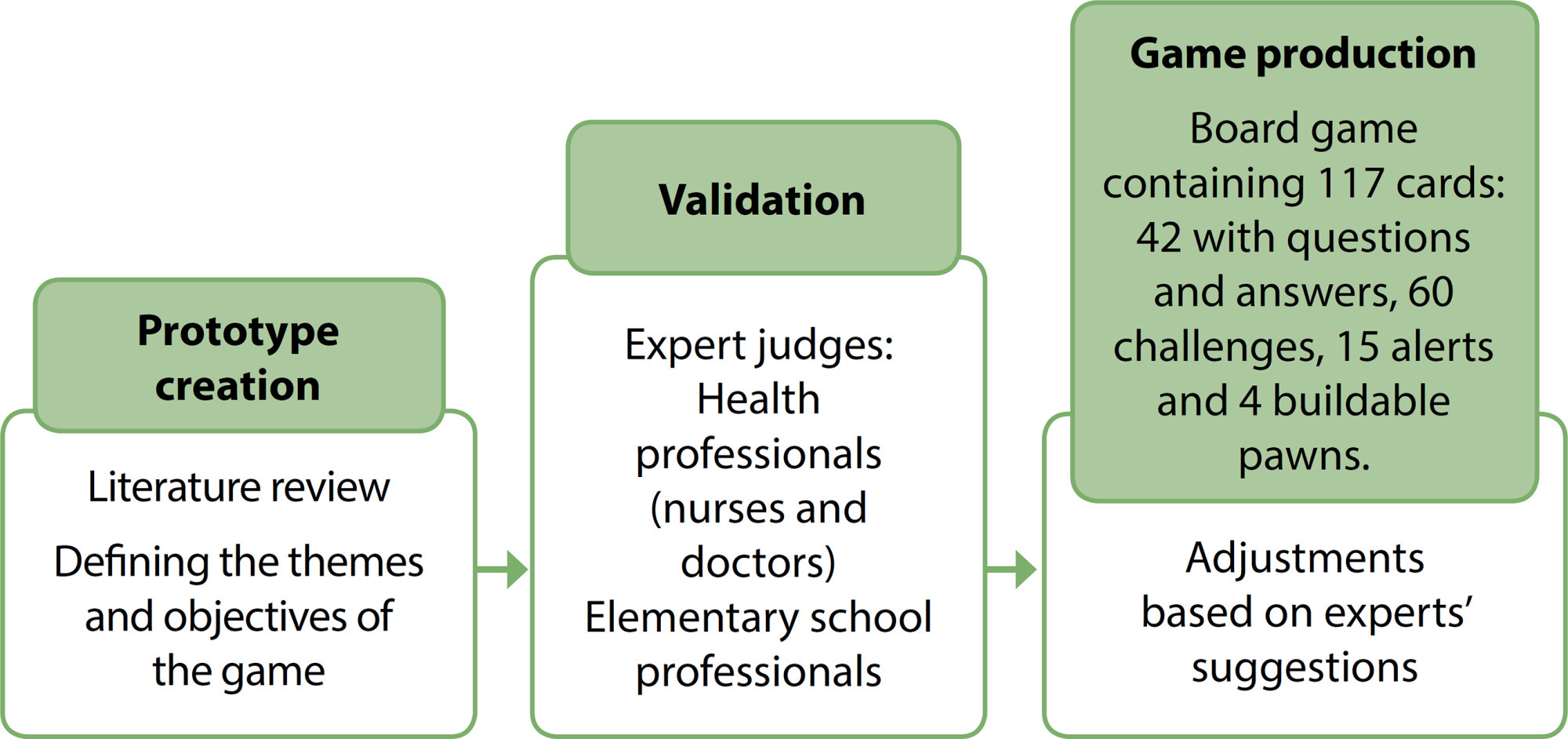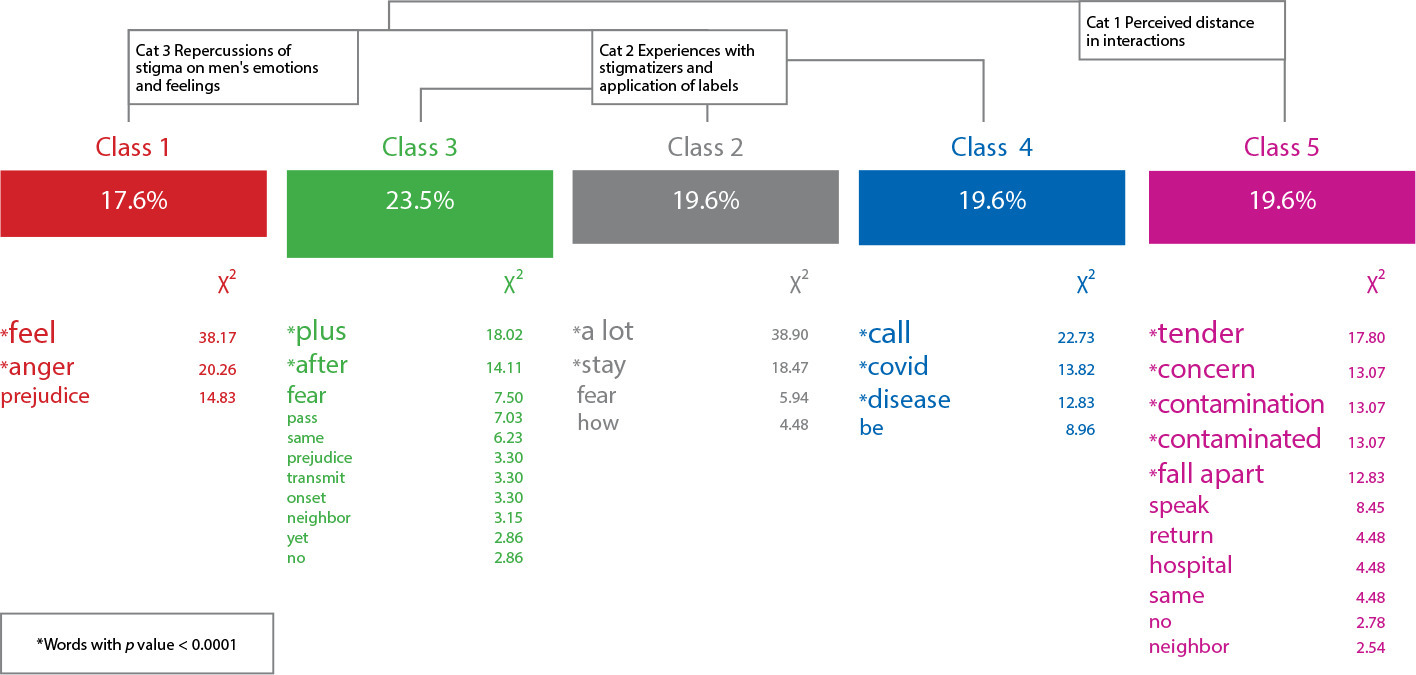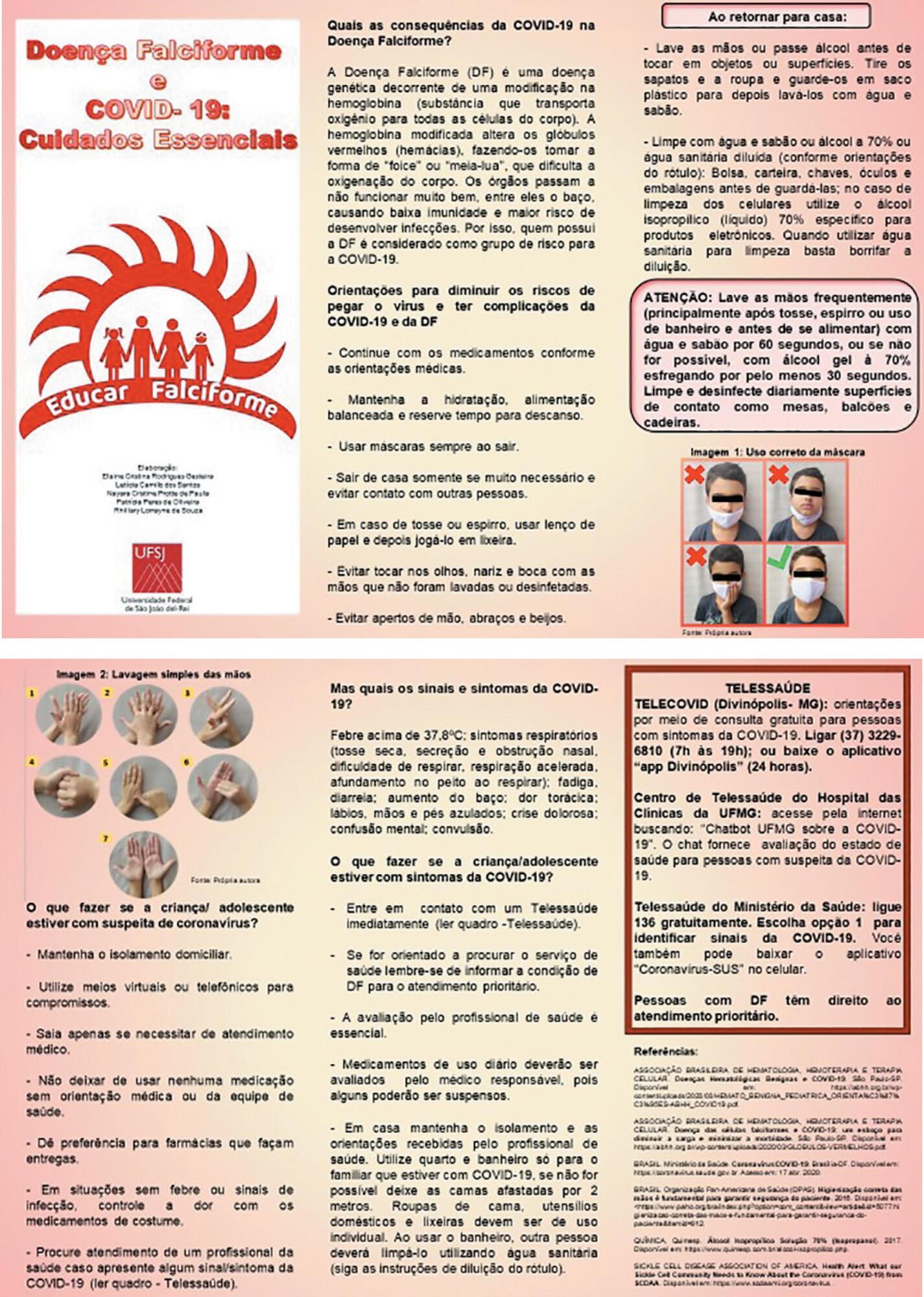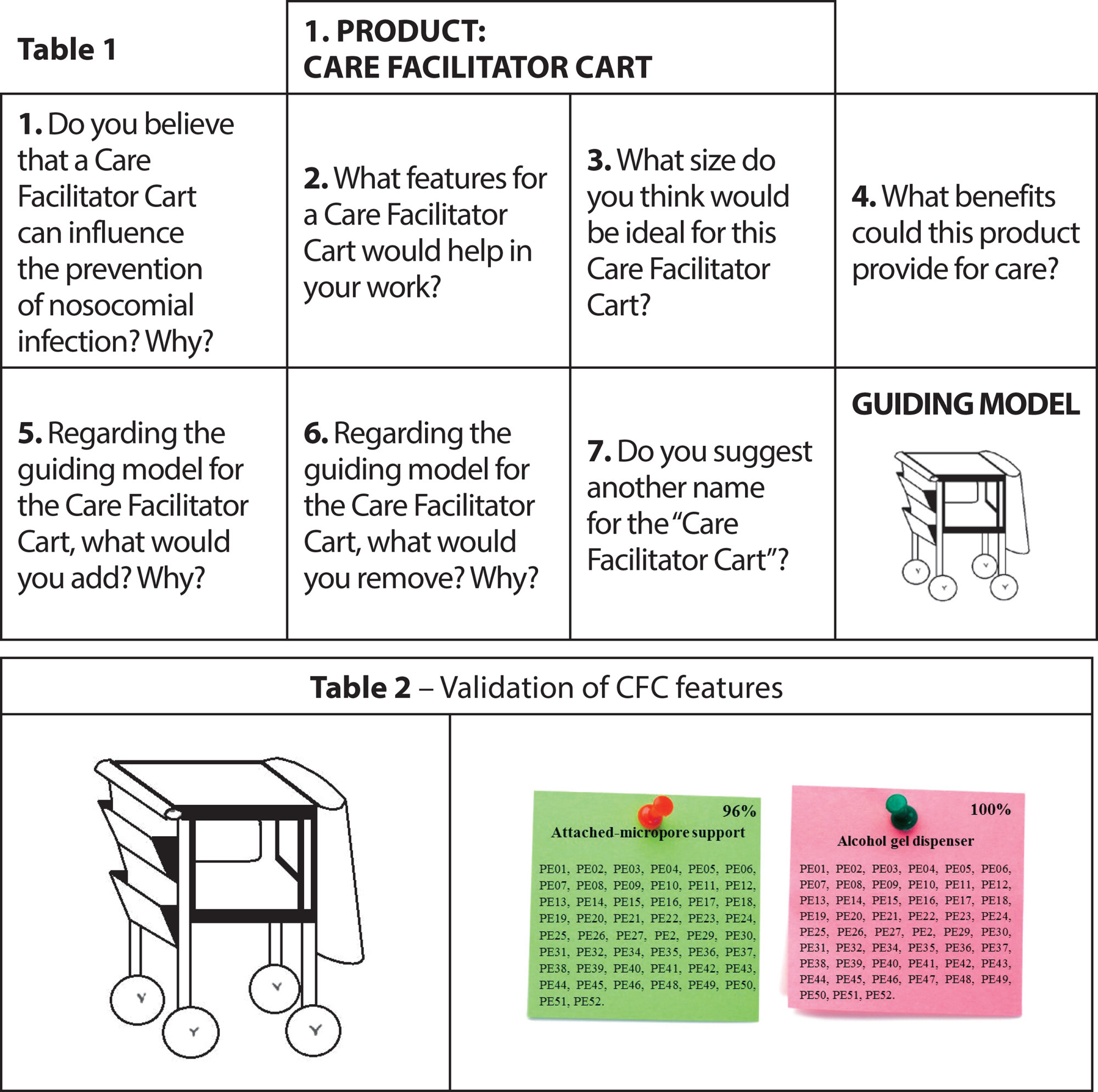-
RESEARCH01-01-2017
Therapeutic nursing care: transition in sexuality of the elderly caregiving spouse
Revista Brasileira de Enfermagem. 2017;70(4):673-681
Abstract
RESEARCHTherapeutic nursing care: transition in sexuality of the elderly caregiving spouse
Revista Brasileira de Enfermagem. 2017;70(4):673-681
DOI 10.1590/0034-7167-2016-0256
Views1See moreABSTRACT
Objective:
To understand the transitions experienced, and the conditions and expected response patterns to changes in sexuality of the spouse-caregiver of the elderly, during progression of the dementia process.
Method:
A qualitative research study, conducted at the neurogeriatric clinic between May of 2014 and May of 2015. An intensive, individual interview was administered to 12 elderly caregivers. Thematic content analysis was applied, using the theoretical model of Transition Theory.
Results:
Seven categories emerged, involving relationship and conjugal sexuality; disease repercussions; care and professional approach; attitudes, beliefs and social imagery of sexuality and care; family relationship and redefining of sexuality.
Final considerations:
Family development and marital life, the aspects of formation and development of sexuality, the specifics that involved living and caring for the other were understood, with successive events and changes influenced by old age, dementia, beliefs and social imagery.
-
01-01-2017
Fundamentals and practice of care in Gerontological Nursing
Revista Brasileira de Enfermagem. 2017;70(4):671-672
Abstract
Fundamentals and practice of care in Gerontological Nursing
Revista Brasileira de Enfermagem. 2017;70(4):671-672
DOI 10.1590/0034-7167.2017700401
Views0Intense social, economic, political, cultural, environmental, epidemiological, and demographical transformations, coupled with accelerated technological innovation, have significantly affected life in society, requiring people to reflect about the conceptions of human nature itself. This context of transformation has incentivized individuals to value technological advances and the construction of more autonomous, global, and unstable human relationships, outlining […]See more -
01-01-2017
Fundamentos e práticas do cuidar em Enfermagem Gerontológica
Revista Brasileira de Enfermagem. 2017;70(4):671-672
Abstract
Fundamentos e práticas do cuidar em Enfermagem Gerontológica
Revista Brasileira de Enfermagem. 2017;70(4):671-672
DOI 10.1590/0034-7167.2017700401
Views0As intensas transformações sociais, econômicas, políticas, culturais, ambientais, epidemiológicas e demográficas, em conjunto com as aceleradas inovações tecnológicas, têm afetado significativamente a vida em sociedade, exigindo que as pessoas reflitam sobre as próprias concepções da natureza humana. Esse contexto de transformações tem estimulado os indivíduos a valorizar os avanços tecnológicos e a construção de relações […]See more -
01-01-2017
The importance of empathy in health and nursing care
Revista Brasileira de Enfermagem. 2017;70(3):669-670
Abstract
The importance of empathy in health and nursing care
Revista Brasileira de Enfermagem. 2017;70(3):669-670
DOI 10.1590/0034-7167-2016-0032
Views0“In her book “Cultivating Empathy”(), Kathleen Stephany, psychologist and professor at the College of Health Sciences at Douglas College, writes about empathy, which she considers to be the basis of effective communication and one of the most important skills to be developed by human beings. Empathy is the ability to put oneself in the place […]See more -
REFLECTION01-01-2017
Clinical reasoning in nursing: teaching strategies and assessment tools
Revista Brasileira de Enfermagem. 2017;70(3):662-668
Abstract
REFLECTIONClinical reasoning in nursing: teaching strategies and assessment tools
Revista Brasileira de Enfermagem. 2017;70(3):662-668
DOI 10.1590/0034-7167-2016-0509
Views0See moreABSTRACT
Objective:
To present the concept and development of teaching strategies and the assessment tools regarding clinical reasoning for accurate practice.
Method:
This is a theoretical reflection based on scientific studies.
Results:
Comprehension of the essential concepts of the thought process and its articulation with the different teaching strategies and the assessment tools which has allowed presenting ways to improve the process of diagnostic or therapeutic clinical reasoning.
Conclusion:
The use of new strategies and assessment tools should be encouraged in order to contribute to the development of skills that lead to safe and effective decision making.

-
REFLECTION01-01-2017
Continuing education in health from the perspective of Augustine of Hippo
Revista Brasileira de Enfermagem. 2017;70(3):656-661
Abstract
REFLECTIONContinuing education in health from the perspective of Augustine of Hippo
Revista Brasileira de Enfermagem. 2017;70(3):656-661
DOI 10.1590/0034-7167-2016-0484
Views0See moreABSTRACT
Objective:
To reflect about continuing education from the perspective of Augustine of Hippo and his theories based on the construction of knowledge and the learning process.
Method:
This is a theoretical reflection study whose aim is to propose dimensions of analysis, emphasizing the history and challenges of continuing education. Such dimensions analyze the production of knowledge in Augustinian pedagogy, its historical aspects and its close relationship with lifelong education in health professions.
Results:
The results show the difficulty of continuing education to reach adequate importance in health services, and that of academia in appropriating the thoughts of renowned philosophers such as Augustine. This is a result of ignorance about the convergence of these principles and their relevance.
Final considerations:
Continuing education and Augustinian pedagogy walk hand in hand in terms of care, meeting the needs that originate from practice and that are reflected in it, challenging isolated knowledge and putting different areas of knowledge to work together.
-
REVIEW01-01-2017
Influence of hormonal contraceptives and the occurrence of stroke: integrative review
Revista Brasileira de Enfermagem. 2017;70(3):647-655
Abstract
REVIEWInfluence of hormonal contraceptives and the occurrence of stroke: integrative review
Revista Brasileira de Enfermagem. 2017;70(3):647-655
DOI 10.1590/0034-7167-2016-0056
Views0See moreABSTRACT
Objective:
To identify scientific evidence regarding the influence of hormonal contraceptive use and the occurrence of stroke.
Method:
Integrative review of the literature, through database search using the descriptors “contraceptive agents“, “contraceptive devices“, “contraceptives, Oral” and “Stroke”. Original studies in Portuguese, Spanish and English, published in full and available online were included. Studies that did not answer our guiding questions and duplicated studies were excluded.
Results:
Women using combined oral contraceptives have higher risk of stroke, even with a lower hormonal dosage and different types of progestogen, regardless of the duration of use. The use of contraceptives associated with smoking, hypertension, migraine, hypercholesterolemia, obesity and sedentary lifestyle increases the chance of stroke. Contraceptive patch and vaginal ring are associated to increased risk.
Conclusion:
Use of combined hormonal contraceptives, except for the injectable and the transdermal ones, increases the chance of occurrence of the event. Progestogen-only contraceptives were considered safe.
-
RESEARCH01-01-2017
Health Conditions and Memory Performance: a study with older adult women
Revista Brasileira de Enfermagem. 2017;70(3):640-646
Abstract
RESEARCHHealth Conditions and Memory Performance: a study with older adult women
Revista Brasileira de Enfermagem. 2017;70(3):640-646
DOI 10.1590/0034-7167-2016-0529
Views0See moreABSTRACT
Objective:
to verify the correlation between health condition and memory performance of older adult women in the community.
Method:
Analytical cross-sectional study developed with 28 older adult women living in Cuiabá-MT. They answered the Mini-Mental State Examination (MMSE), and a shortened Geriatric Depression Scale (GDS-15) to screen for dementia and depression symptoms. Memory skills were assessed through Rey Auditory Verbal Learning Test (RAVLT).
Results:
The mean age was 66.36 years and 75% of the participants had educational level higher than 7 years. The MMSE mean score was 28.45. The correlations found were: educational level and immediate memory (r = 0.49; p = 0.008); delayed recall and immediate memory (r = 0.71; p < 0.001); memory recognition and immediate memory (r = 0.43; p = 0.021) and recognition memory with delayed recall (r = 0.47; p = 0.012).
Conclusion:
High scores in the MMSE and a satisfactory health perception among the participants were evident. There was no correlation between memory performance and health perception.
-
REFLECTION12-21-2020
War against the COVID-19 pandemic: reflection in light of Florence Nightingale’s nursing theory
Revista Brasileira de Enfermagem. 2020;73:e20200371
Abstract
REFLECTIONWar against the COVID-19 pandemic: reflection in light of Florence Nightingale’s nursing theory
Revista Brasileira de Enfermagem. 2020;73:e20200371
DOI 10.1590/0034-7167-2020-0371
Views0See moreABSTRACT
Objective:
To reflect on the relationship and importance of the environmental theory regarding practices for promotion, prevention, and treatment of COVID-19.
Methods:
A theoretical-reflexive study about the COVID-19 pandemic in light of the environmental theory proposed by Florence Nightingale.
Results:
It is observed that the application of the theoretical foundations proposed by the environmental theory is related to the current practices used in the fight against the COVID-19 pandemic.
Final Considerations:
It is believed that the theoretical basis is fundamental for the critical-reflexive training of the nursing professional, for the consolidation of Nursing as a science; therefore, it could provide a foundation in nowadays battle against the pandemic.
-
08-20-2021
Validation of an educational game about first aid for schoolchildren
Revista Brasileira de Enfermagem. 2021;74(6):e20201107
Abstract
Validation of an educational game about first aid for schoolchildren
Revista Brasileira de Enfermagem. 2021;74(6):e20201107
DOI 10.1590/0034-7167-2020-1107
Views0See moreABSTRACT
Objectives: to validate the content and appearance of an educational game about first aid for schoolchildren with experts in education and health.
Methods: this is a methodological, quantitative and descriptive research, carried out using the Delphi technique, using an online collection instrument, covering 55 items of the game. Content and appearance assessment was performed by 26 judges. The data were analyzed using Content Validity index.
Results: the final prototype is presented in a board format, composed of four buildable pawns and 117 cards between questions, alerts and challenges. Overall Content Validity index of 0.95 and greater than 0.8 was obtained for all items in two Delphi rounds.
Conclusions: the educational game validated by experts is a pedagogical tool for teaching first aid to schoolchildren as an option to traditional educational practices.

-
ORIGINAL ARTICLE06-27-2019
Infection related to Klebsiella pneumoniae producing carbapenemase in renal transplant patients
Revista Brasileira de Enfermagem. 2019;72(3):760-766
Abstract
ORIGINAL ARTICLEInfection related to Klebsiella pneumoniae producing carbapenemase in renal transplant patients
Revista Brasileira de Enfermagem. 2019;72(3):760-766
DOI 10.1590/0034-7167-2019-0009
Views0See moreABSTRACT
Objective:
To evaluate the risk factors related to Klebsiella pneumoniae carbapenemase infection after renal transplantation.
Methods:
This was a retrospective epidemiological (case-control) study, conducted from October 2011 to march 2016. Transplanted patients with infection by this bacteria during hospitalization were selected as cases. The controls were paired by age, sex, type of donor and transplant time. The proportion of cases and controls was 1:2.
Results:
Thirty hundred and five patients were included in the study (45 cases and 90 controls). The risk factors found for infection by KPC were: time of hospitalization after the transplant (OR: 4.82; CI95% 2.46-9.44), delayed kidney function (OR: 5.60; CI95% 1.91-11.01) and previous infectious for another microorganism ( OR: 34.13 CI95% 3.52-132.00).
Conclusion:
The risk of acquisition of this bacterium was directly related to invasive procedures and exposure to the hospital environment. The findings reinforce the importance of prevention measures and control of infection by this microorganism.
-
ORIGINAL ARTICLE11-19-2022
Stigma experienced by men diagnosed with COVID-19
Revista Brasileira de Enfermagem. 2022;75:e20210038
Abstract
ORIGINAL ARTICLEStigma experienced by men diagnosed with COVID-19
Revista Brasileira de Enfermagem. 2022;75:e20210038
DOI 10.1590/0034-7167-2021-0038
Views0See moreABSTRACT
Objective:
to analyze the stigma characteristics perceived in the experience of men who had COVID-19.
Method:
this qualitative study involved men living in Brazil, diagnosed with COVID-19, who answered semi-structured questions in an online form. Data were subjected to thematic and lexical analysis, interpreted in the light of the stigma theory.
Results:
92 men, adults, cisgender, heterosexual, of mixed race/color, belonging to middle class, living in the urban area, with higher education participated. The stigma characteristics evidenced were the occurrence of leave, perception of impolite treatment, use of labels and discrimination by co-workers, family members, neighbors and even healthcare professionals, with consequences for the psycho-emotional dimension.
Final considerations:
discrimination and exclusion derived from stigma surprised men marked by class and gender privileges, little used to being downgraded in interactions when compared to other groups.

-
ORIGINAL ARTICLE04-22-2020
Indicators of effectiveness of nursing care in the dimension of patient safety
Revista Brasileira de Enfermagem. 2020;73(3):e20180833
Abstract
ORIGINAL ARTICLEIndicators of effectiveness of nursing care in the dimension of patient safety
Revista Brasileira de Enfermagem. 2020;73(3):e20180833
DOI 10.1590/0034-7167-2018-0833
Views0See moreABSTRACT
Objectives:
to validate nursing care effectiveness indicators of patient safety dimension.
Methods:
quantitative survey, using the electronic Delphi sampli, with 52 participants selected by the Snowball sampling. Eight indicators were evaluated regarding the attributes: availability, reliability, simplicity, representativeness, sensitivity, comprehensiveness, objectivity, cost, utility, stability and timeliness. For validation, the minimum agreement criterion was 70%.
Results:
Cronbach’s alpha (0.942) evidenced the high internal consistency among the attributes. The indicators fall with damage, hip fracture, and postoperative hip fracture, incidents related to equipment, incidents due to failures in patient identification, and pressure injury were validated in all attributes, and those of medication error and hand Hygiene were not validated.
Conclusions:
the validated indicators allow assessment of the effectiveness of hospital nursing care. Unavailability of data is an obstacle to monitoring patient safety.
-
ORIGINAL ARTICLE08-26-2022
Sickness absenteeism of Primary Health Care professionals before and during the COVID-19 pandemic
Revista Brasileira de Enfermagem. 2022;75:e20220028
Abstract
ORIGINAL ARTICLESickness absenteeism of Primary Health Care professionals before and during the COVID-19 pandemic
Revista Brasileira de Enfermagem. 2022;75:e20220028
DOI 10.1590/0034-7167-2022-0028
Views0See moreABSTRACT
Objective:
to identify the frequency of occurrence of sickness absenteeism, according to the profile of Primary Health Care (PHC) professionals, and verify if there was an impact of the pandemic on absence duration and reason.
Methods:
a cross-sectional study, from January/2019 to December/2020, with PHC professionals from a municipality in northeastern São Paulo. Descriptive statistics were performed, with frequency calculation.
Results:
of the 977 PHC professionals, 633 (64.79%) used a medical certificate to justify their absence from work in 2019, and 837 (85.67%) in 2020. The main reason for leave was diseases of the musculoskeletal system and connective tissue in the two years. The mean duration of leave was 7.33 days (SD=17.33) in 2019 and 9.88 days (SD=16.05) in 2020. Nursing assistants were the ones who took the most leave in both years.
Conclusions:
there was an impact of the pandemic on absence duration and reason.
-
06-11-2021
Educational technology on COVID-19 for families of children and adolescents with sickle cell disease
Revista Brasileira de Enfermagem. 2021;74:e20201045
Abstract
Educational technology on COVID-19 for families of children and adolescents with sickle cell disease
Revista Brasileira de Enfermagem. 2021;74:e20201045
DOI 10.1590/0034-7167-2020-1045
Views1See moreABSTRACT
Objective:
to construct and validate educational technology on COVID-19 and essential care for families of children/adolescents with sickle cell disease.
Methods:
this is a methodological study, in three stages: 1) elaborated educational technology, using the Doak, Doak and Root theoretical-methodological model; 2) content and appearance validation by the content validity coefficient. Delphi technique was applied in two rounds (Delphi I [12 judges]/Delphi II [11 judges]); 3) conducting a pilot test with six families.
Results:
“Sickle cell disease and COVID-19: essential care” included: consequences of COVID-19 in sickle cell disease, guidelines for reducing the risks of contracting the virus and having complications, signs and symptoms of COVID-19, guidelines in case of child/adolescent with suspicion or symptoms of COVID-19. Global content validity coefficient (Delphi II): 0.98.
Conclusion:
educational technology presented content and appearance validity for families of children/adolescents with sickle cell disease, related to COVID-19.

-
ORIGINAL ARTICLE12-21-2020
Care Facilitator Cart: a product technology built with nursing professionals
Revista Brasileira de Enfermagem. 2020;73:e20190741
Abstract
ORIGINAL ARTICLECare Facilitator Cart: a product technology built with nursing professionals
Revista Brasileira de Enfermagem. 2020;73:e20190741
DOI 10.1590/0034-7167-2019-0741
Views0See moreABSTRACT
Objectives:
to describe a product technology building (Care Facilitator Cart) with nursing professionals working in surgical clinic and medical clinic at a university hospital in Rio Grande do Sul.
Methods:
a qualitative, methodological research guided by the Business Model Canvas, with 52 nursing professionals, through non-participant observation and brainstorming, carried out from April to October 2016. The records were analyzed through content analysis.
Results:
the product was built with two floors, a retractable table, a removable compartment for disposal and separation of infectious, recyclable and sharps waste, lid opening by a sensor, among others.
Final Considerations:
the invention unleashes possibilities to be an innovative instrument aimed at performing safe care in hospital institutions, with a view to reducing professional wear, rework, infection control, and effectiveness of procedures and techniques.

Search
Search in:
Nuvem de Tags
Adolescente (85) Atenção Primária à Saúde (239) COVID-19 (91) Criança (91) Cuidados de Enfermagem (269) Educação em Enfermagem (151) Educação em Saúde (139) Enfermagem (930) Enfermagem Pediátrica (86) Estudantes de Enfermagem (77) Estudos de Validação (131) Família (87) Idoso (208) Promoção da Saúde (99) Qualidade de Vida (104) Saúde do Trabalhador (86) Saúde Mental (145) Saúde Pública (82) Segurança do Paciente (150) Tecnologia Educacional (100)



